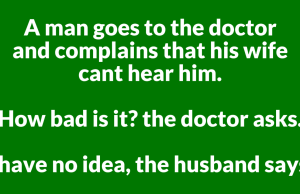HEART ATTACK HAS DIFFERENT SYMPTOMS FOR WOMEN- PAY CLOSE ATTENTION TO THIS SIGNS
HEART ATTACK SYMPTOMS FOR WOMEN
The most common heart attack symptom in women is the same as in men — some type of chest pain, pressure or discomfort that lasts more than a few minutes or comes and goes.
But chest pain is not always severe or even the most noticeable symptom, particularly in women. Women often describe heart attack pain as pressure or tightness. And it’s possible to have a heart attack without chest pain.
Women are more likely than men to have heart attack symptoms unrelated to chest pain, such as:
· Neck, jaw, shoulder, upper back or abdominal discomfort
· Shortness of breath
· Pain in one or both arms
· Nausea or vomiting
· Sweating
· Lightheadedness or dizziness
· Unusual fatigue
HEART DISEASE RISK FACTORS FOR WOMEN
Although several traditional risk factors for coronary artery disease — such as high cholesterol, high blood pressure, and obesity — affect women and men, other factors may play a bigger role in the development of heart disease in women. For example, risk factors may include:
Diabetes. Women with diabetes are at greater risk of heart disease than are men with diabetes.
Mental stress and depression. Women’s hearts are affected by stress and depression more than men’s. Depression makes it difficult to maintain a healthy lifestyle and follow recommended treatment, so talk to your doctor if you’re having symptoms of depression.
Smoking. In women, smoking is a greater risk factor for heart disease in women than it is in men.
Inactivity. A lack of physical activity is a major risk factor for heart disease, and some research has found women to be more inactive than men.
Menopause. Low levels of estrogen after menopause pose a significant risk factor for developing cardiovascular disease in the smaller blood vessels (coronary microvascular disease).
Broken heart syndrome. This condition — often brought on by stressful situations that can cause severe, but usually temporary, heart muscle failure — occurs more commonly in women after menopause. This condition may also be called takotsubo cardiomyopathy, apical ballooning syndrome or stress cardiomyopathy.
Pregnancy complications. High blood pressure or diabetes during pregnancy can increase the mother’s long-term risk of high blood pressure and diabetes. These conditions also make women more likely to get heart disease.
Inflammatory diseases. Rheumatoid arthritis, lupus and other inflammatory conditions may increase the risk of heart disease in both men and women.
Certain chemotherapy drugs and radiation therapy for cancer. Some chemotherapy drugs and radiation therapies, such as those used to treat breast cancer, may increase the risk of cardiovascular disease.· Pregnancy complications. High blood pressure or diabetes during pregnancy can increase women’s long-term risk of high blood pressure and diabetes and increase the risk of development of heart disease in mothers.Some research has found that if you had pregnancy complications such as high blood pressure or diabetes your children may also have an increased risk of heart disease in the future.
Source:funnystation.net, mayoclinic.org


















